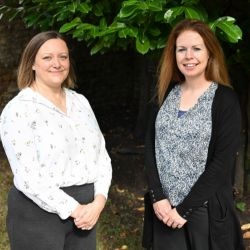-
Study
-
Clearing 2025
- Clearing FAQs
- Clearing Case Studies
- Unlock Your Potential
- Scholarships
- Search Clearing
-
Undergraduate
- UCAS Clearing & Confirmation 2025
- Application Guides
- UCAS Exhibitions
- Foundation Years
- School & College Outreach
- Information for Parents
-
Postgraduate
- Application Guide
- Postgraduate Research Degrees
- Flexible Learning
- Change Direction
- Register your Interest
-
Student Life
- Students' Union
- The Hub - Student Blog
- Accommodation
- Northumbria Sport
- Support for Students
-
Learning Experience
- Real-World Learning
- Research-enriched learning
- Graduate Futures
- The Business Clinic
- Study Abroad
-
-
International
International
Northumbria’s global footprint touches every continent across the world, through our global partnerships across 17 institutions in 10 countries, to our 277,000 strong alumni community and 150 recruitment partners – we prepare our students for the challenges of tomorrow. Discover more about how to join Northumbria’s global family or our partnerships.
View our Global Footprint-
Quick Links
- Course Search
- Undergraduate Study
- Postgraduate Study
- Information for Parents
- London Campus
- Northumbria Pathway
- Cost of Living
- Sign up for Information
-
International Students
- Information for Students
- International Events
- Application Guide
- Entry Requirements and Education Country Agents
- Global Offices
- English Requirements
- English Language Centre
- International student support
- Cost of Living
-
International Fees and Funding
- International Undergraduate Fees
- International Undergraduate Funding
- International Masters Fees
- International Masters Funding
- International Postgraduate Research Fees
- International Postgraduate Research Funding
-
International Partners
- Agent and Representatives Network
- Global Partnerships
- Global Community
-
International Mobility
- Study Abroad
- Information for Incoming Exchange Students
-
-
Business
Business
The world is changing faster than ever before. The future is there to be won by organisations who find ways to turn today's possibilities into tomorrows competitive edge. In a connected world, collaboration can be the key to success.
More on our Business Services -
Research
Research
Northumbria is a research-rich, business-focused, professional university with a global reputation for academic quality. We conduct ground-breaking research that is responsive to the science & technology, health & well being, economic and social and arts & cultural needs for the communities
Discover more about our Research-
Quick Links
- Research Peaks of Excellence
- Academic Departments
- Research Staff
- Postgraduate Research Studentships
- Research Events
-
Research at Northumbria
- Interdisciplinary Research Themes
- Research Impact
- REF
- Partners and Collaborators
-
Support for Researchers
- Research and Innovation Services Staff
- Researcher Development and Training
- Research Ethics and Integrity
- University Library
- Vice Chancellors Fellows
-
Research Degrees
- Postgraduate Research Overview
- Doctoral Training Partnerships and Centres
- Academic Departments
-
Research Culture
- Research Culture
- Research Culture Action Plan
- Concordats and Commitments
-
-
About Us
-
About Northumbria
- Our Strategy
- Our Staff
- Place and Partnerships
- Leadership & Governance
- Academic Departments
- University Services
- History of Northumbria
- Contact us
- Online Shop
-
-
Alumni
Alumni
Northumbria University is renowned for the calibre of its business-ready graduates. Our alumni network has over 250,000 graduates based in 178 countries worldwide in a range of sectors, our alumni are making a real impact on the world.
Our Alumni - Work For Us
What will I learn on this module?
This module is designed to introduce you to the important areas of probability and statistics. In this module, you will learn about data collection methods, probability theory and random variables, hypothesis testing and simple linear regression. Real-life examples will be used to demonstrate the applications of these statistical techniques. You will learn how to use R to analyse data in various practical applications.
Outline Syllabus
Data collection: questionnaire design, methods of sampling - simple random, stratified, quota, cluster and systematic. Sampling and non-sampling errors. Random number generation using tables or calculator.
Population and sample, types of data, data collection, frequency distributions, statistical charts and graphs, summary measures, analysis of data using R.
Probability: sample space, types of events, definition of probability, addition and multiplication laws, conditional probability. Discrete probability distributions including Binomial, Poisson. Continuous probability distributions including the Normal. Central Limit Theorem. Mean and variance of linear combination of random variables. Use of Statistics tables.
Hypothesis tests on one sample mean and variance, confidence intervals using the normal and Student t distributions.
Correlation and simple linear regression.
How will I learn on this module?
You will learn through a series of formal sessions including both lectures and seminars. During lectures, main concepts with suitable applications/examples are introduced. Seminars allow you to gain experience in applying concepts introduced in lectures through working on practical questions. All the seminars will be scheduled in our modern computer laboratories, enabling you to apply the techniques and deepen your understanding of the material and develop your practical skills. This, in turn, develops your confidence to explore the subject area further as an independent learner outside the classroom.
Formative feedback is available weekly in the classes as you get to grips with new techniques and solve problems. In addition, we operate an open door policy where you can meet with your module tutor to seek further advice or help if required. Your ability to select appropriate techniques to solve practical problems is assessed in an exam at the end of the module covering most of the Module Learning Outcomes.
General feedback on assessments will be given in class and individual feedback will be written on scripts. An opportunity to discuss work further will be available on an individual basis when work is returned and also through the open door policy.
How will I be supported academically on this module?
Direct contact with the teaching team during the formal sessions will involve participation in both general class discussions as well as one to one discussions during the hands-on part of the formal sessions. This gives you a chance to get immediate feedback pertinent to your particular needs in this session. Further feedback and discussion with the teaching team are also available at any time through our open door policy. In addition, all teaching materials and supplementary material (such as relevant journal articles and news) are available through the e-learning portal.
What will I be expected to read on this module?
All modules at Northumbria include a range of reading materials that students are expected to engage with. Online reading lists (provided after enrolment) give you access to your reading material for your modules. The Library works in partnership with your module tutors to ensure you have access to the material that you need.
What will I be expected to achieve?
Knowledge & Understanding:
1. Apply and appraise procedures for data collection;
2. Perform an appropriate hypothesis test within a given context;
Intellectual / Professional skills & abilities:
3. Compute and interpret probability statements to tackle real-life problems;
4. Construct simple linear regression to quantify a statistical relationship between variables.
Personal Values Attributes (Global / Cultural awareness, Ethics, Curiosity) (PVA):
5. Analyse data arising from practical problems in health and social sciences using appropriate statistical techniques, interpret and communicate results to general audiences.
6. Work in group, share knowledge and responsibilities, effective time management
How will I be assessed?
SUMMATIVE
Presentation (20%)- 3,5,6
Examination (80%) – 1, 2, 3, 4, 5
FORMATIVE
Seminar problems – 1, 2, 3, 4, 5, 6
Formative assessment will be available on a weekly basis in the formal sessions through normal lecturer-student interactions, allowing them to extend, consolidate and evaluate their knowledge.
Formative feedback will be provided on student work and errors in understanding will be addressed reactively using individual discussion. Solutions for laboratory tasks will be provided after the students have attempted the questions, allowing students to receive feedback on the correctness of their solutions and to seek help if matters are still not clear.
Pre-requisite(s)
N/A
Co-requisite(s)
N/A
Module abstract
‘Probability and Statistics’ will equip you with the fundamental and essential statistical techniques and will enable you to solve real-life statistical problems using appropriate statistical software. In ‘Statistics’, you will gain both the theoretical understanding of a wide range of statistical techniques and experience in applying these techniques in practical situations.
This module comprises of both lectures, where main concepts with suitable applications/examples are introduced, and regular seminars, which allow you to gain experience in applying concepts introduced in lectures through working on practical questions. You will be assessed by a mid-semester group work presentation (20%) and a final examination (80%).
‘Probability and Statistics’ will enhance your employability, providing you with a sound foundation in probability and statistics, which is required for working in various industry sectors as well as for your future study.
Course info
UCAS Code G101
Credits 20
Level of Study Undergraduate
Mode of Study 4 years Full Time or 5 years with a placement (sandwich)/study abroad
Department Mathematics, Physics and Electrical Engineering
Location City Campus, Northumbria University
City Newcastle
Start September 2025 or September 2026
All information is accurate at the time of sharing.
Full time Courses are primarily delivered via on-campus face to face learning but could include elements of online learning. Most courses run as planned and as promoted on our website and via our marketing materials, but if there are any substantial changes (as determined by the Competition and Markets Authority) to a course or there is the potential that course may be withdrawn, we will notify all affected applicants as soon as possible with advice and guidance regarding their options. It is also important to be aware that optional modules listed on course pages may be subject to change depending on uptake numbers each year.
Contact time is subject to increase or decrease in line with possible restrictions imposed by the government or the University in the interest of maintaining the health and safety and wellbeing of students, staff, and visitors if this is deemed necessary in future.
Useful Links
Find out about our distinctive approach at
www.northumbria.ac.uk/exp
Admissions Terms and Conditions
northumbria.ac.uk/terms
Fees and Funding
northumbria.ac.uk/fees
Admissions Policy
northumbria.ac.uk/adpolicy
Admissions Complaints Policy
northumbria.ac.uk/complaints










